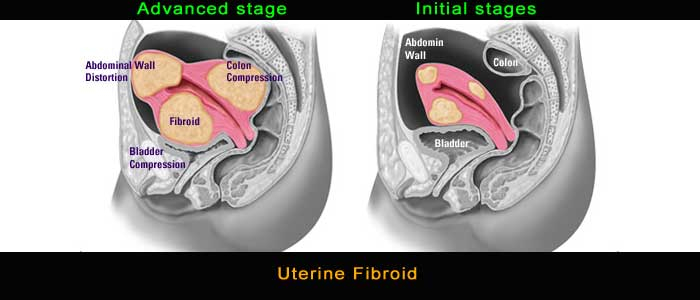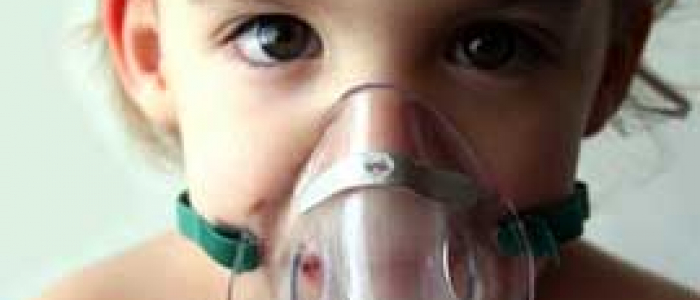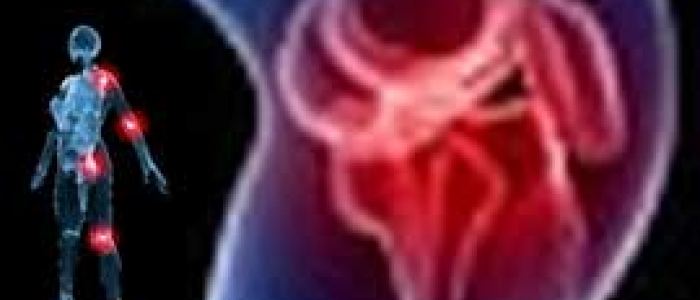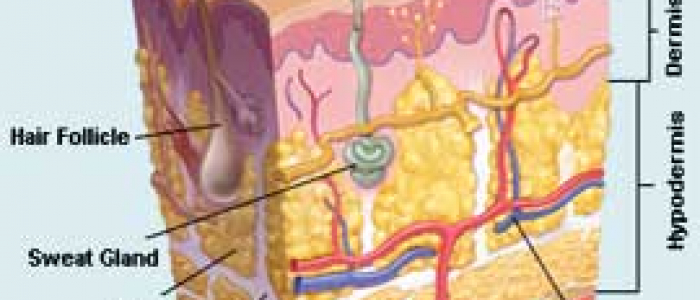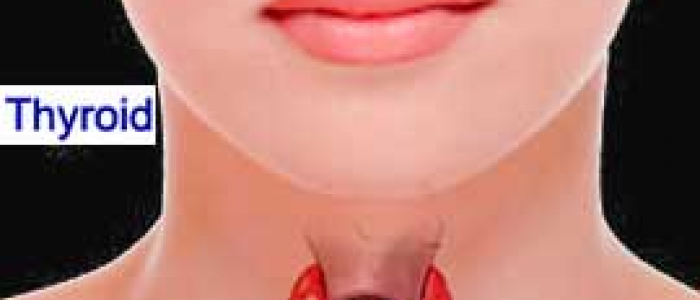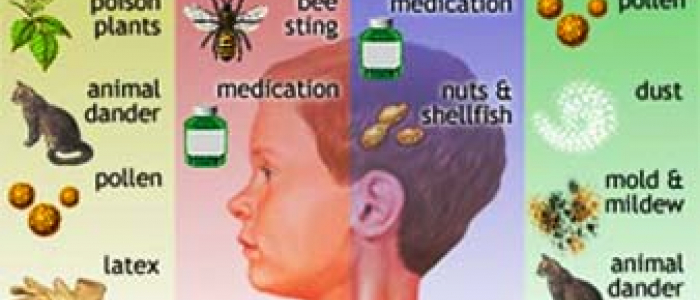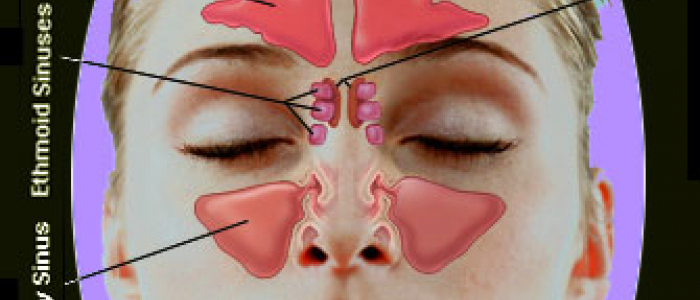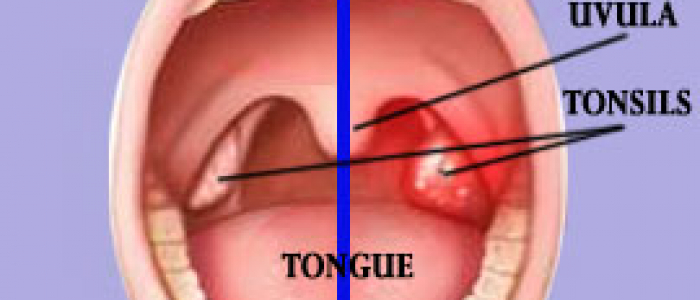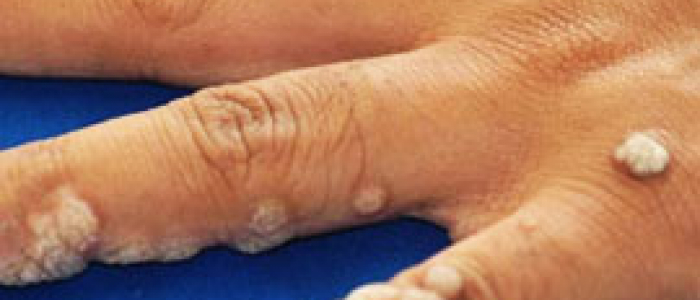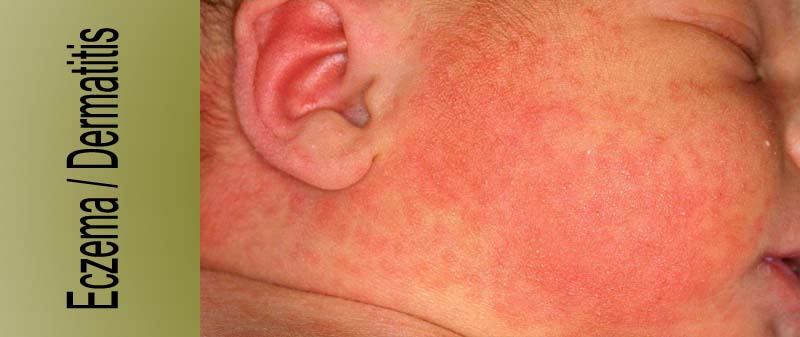
The terms eczema and dermatitis are now used synonymously. They refer to a distinctive reaction pattern of the skin showing a combination of signs which depend on the duration of rash and type of eczema.
There are several types of eczema, which affect children and adults, and have different causes. The two most common forms are atopic dermatitis (Exogenous) and contact dermatitis (Endogenous).
1.Atopic dermatitis ( Exogenous )
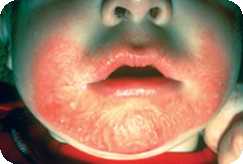 This condition (also called atopic eczema or infantile eczema) affects people with dry and rough skin (keratosis pilaris) and may be caused by a variety of allergens. It often starts in early childhood, around three months of age, and tends to run in 'atopic' families.
This condition (also called atopic eczema or infantile eczema) affects people with dry and rough skin (keratosis pilaris) and may be caused by a variety of allergens. It often starts in early childhood, around three months of age, and tends to run in 'atopic' families.
Possible causes include:
- Food allergy , which plays an important role in children under one year but not in adults
- Cow's milk, hen's eggs and peanuts are the foods most likely to exacerbate infantile eczema
- House dust mites tend to aggravate eczema in older children and adults
- Pet dander exposure, such as to cats, dogs and other furry animals, may play a role
- Certain bacteria may cause sudden, severe outbreaks of eczema
2.Contact dermatitis ( Endogenous)
This group contains all other types of which cause and mechanism is poorly understood. Many factors like heredity, hypersensitivity, fungal infection, senile changes, venous stasis etc are implicated in various forms of endogenous eczema.
There are two types of contact dermatitis:
- Allergic contact dermatitis - the skin becomes sensitised to something over a period of time and an allergic reaction occurs on re-exposure
- Irritant contact dermatitis - occurs when the skin comes in contact with something that strips away its natural oils and makes the skin red, dry, cracked and itchy
Irritant contact dermatitis is not an allergy.
An estimated one in 12 adults and one in five school-age children have eczema.
The most common causes of allergic contact dermatitis are:
- Nickel in jewellery and on clothing fasteners and studs
- Rubber and building materials such as cement, solvents and glues
- Ingredients found in cosmetics, hair dyes and perfumes
The most common causes of irritant contact dermatitis include:
- Soaps, detergents and fabric conditioners
- Shampoos
- Disinfectants and bleaches
What actally happens ?
It is not very well understood. In acute stage of eczema, edema of the epidermis and intra-epidermal vesicles form. In chronic stage there is thickening and pigmentation of skin.
Signs and symptoms
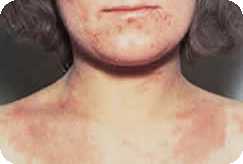
In mild cases, eczema is nothing more than a slightly irritating patch of sore skin, but in severe cases extensive areas of skin may become inflamed and unbearably itchy.
Some people with these symptoms develop problems such as depression with low self-esteem, and have difficulty coping at school or work.
People with eczema are also more prone to herpes, skin fungal and wart infections.
Up to half of all babies with widespread atopic eczema will later develop asthma and rhinitis as the eczema improves. This phenomenon is referred to as the 'allergic march'.
The common symptoms are the following.
Acute Eczema
- Redness and swelling, usually with ill defined margins
- Papules, vesicles, and more large blisters
- Exudation and cracking of skin
- Scaling of skin
- Itching in and around the lesion
Chronic Eczema
- All the above plus
- Thickening and lichenification ( a dry leathery thickening with increased skin margins, is secondary to rubbing and scratching and is most often seen in atopic eczema.)
- Fissures and scratch marks
- Pigmentation of the skin in and around the lesion
Complications
Super infection - most often with bacteria (staph-aureus) and yeast (candia). Super infection is encouraged by the use of local steroids.
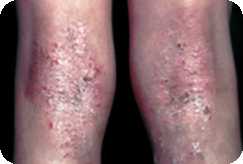
How is it diagnosed?
Usually eczemas are diagnosed clinically. Patch test and prick test may be required for allergens.
What to differentiate from?
- Simple pruritis
- Fungal, bacterial, and other infections
- Exfoliative dermatitis
Homeopathy for Eczema and Allergic Dermatitis
Homeopathy offers very good treatment for eczema, but the approach used by homeopaths is very different from that of conventional treatment. Homeopaths usually do not give anything to apply topically. Instead they try to remove the basic disposition/sensitivity to develop such a lesion using internal medicine. This approach not only successfully removes the eczema but also removes the possibility of development of other hypersensitivity disorders like asthma after the eczema is cured. To find the proper remedy a homeopath collects all the past medical history of the person, his/her family history, his/her physical and psychological characteristics etc. All this information helps the homeopath to find a remedy which not only will remove the eczema but will also remove the disposition to acquire such diseases. As a note of caution I would like to add here that after a proper remedy is given the eczema may occasionally ( not often) show a mild flare up. This should not worry the patient as it is often considered a good prognostic sign by homeopaths.
There are many medicines in homeopathy that are used for this condition. ars-alb, bovista, dulcamara, graphites, lycopodium, mezereum, peteroleum, rhus-tox, sulphur, cicuta etc are some commonly used medicines. But which medicine will work in a particular case can only be judged by a trained homeopath.
General Advice
If you have contact dermatitis, you must try to identify the cause so you can avoid it. Patch testing with various chemicals can help in this.
If you have atopic eczema, you may be able to find out what you're allergic to by having special skin-prick tests for environmental and food allergens. Once an allergen has been identified, practical steps can be taken to avoid it.
If you have atopic eczema you may find the following useful:
- Take lukewarm baths with emollients, but don't stay in the water too long
- Pat the skin dry with a towel - never rub eczematous skin dry
- Avoid soap, detergents and shampoo - use aqueous cream instead of soap
- Wear cotton fabrics next to your skin - avoid wool and polyester
- Wear loose rather than tight-fitting clothes
- Clip your fingernails and don't scratch or rub your skin
- Avoid sports that make you sweat a lot
- Try to stay calm and relaxed because stress can make eczema worse.
Also Read :
Common skin diseases of children
Common skin diseases of Adults



